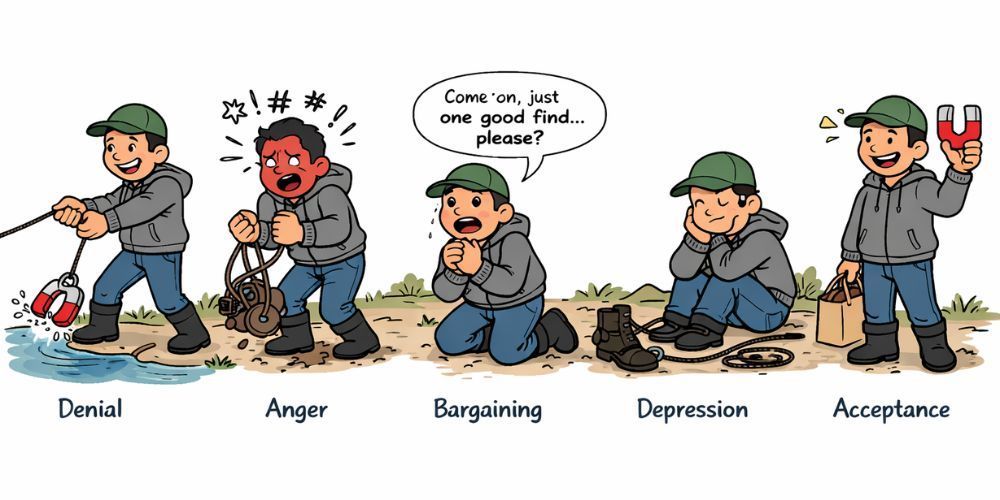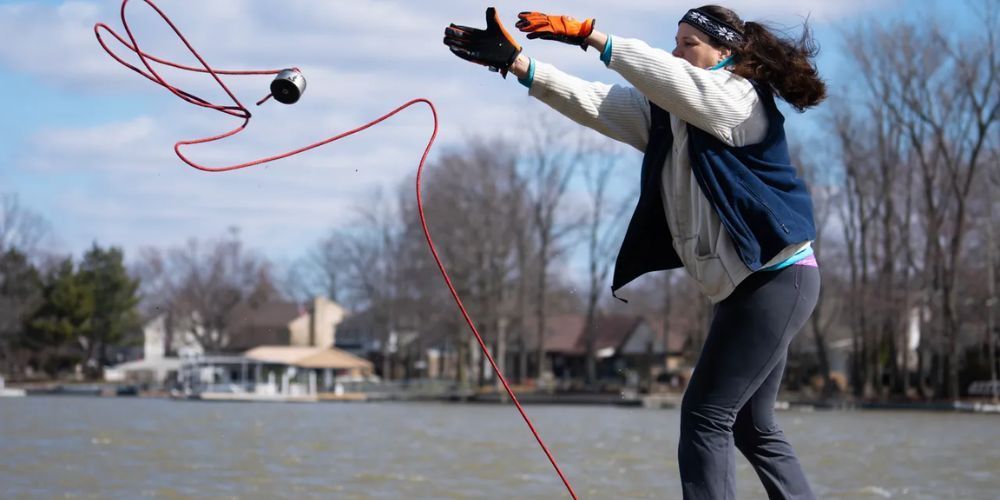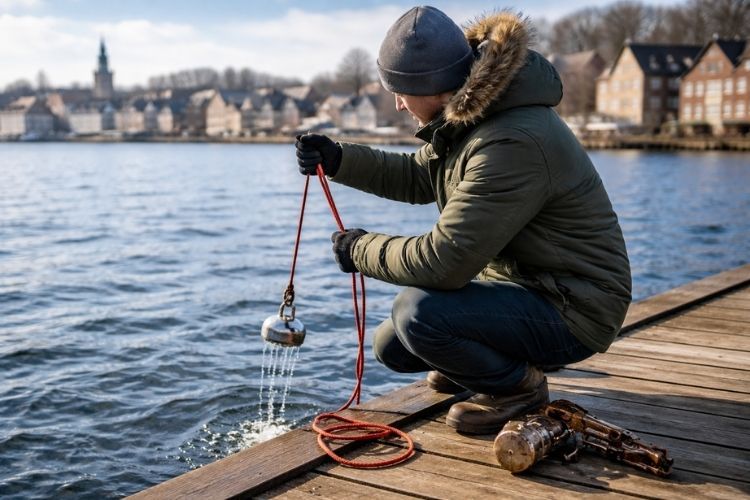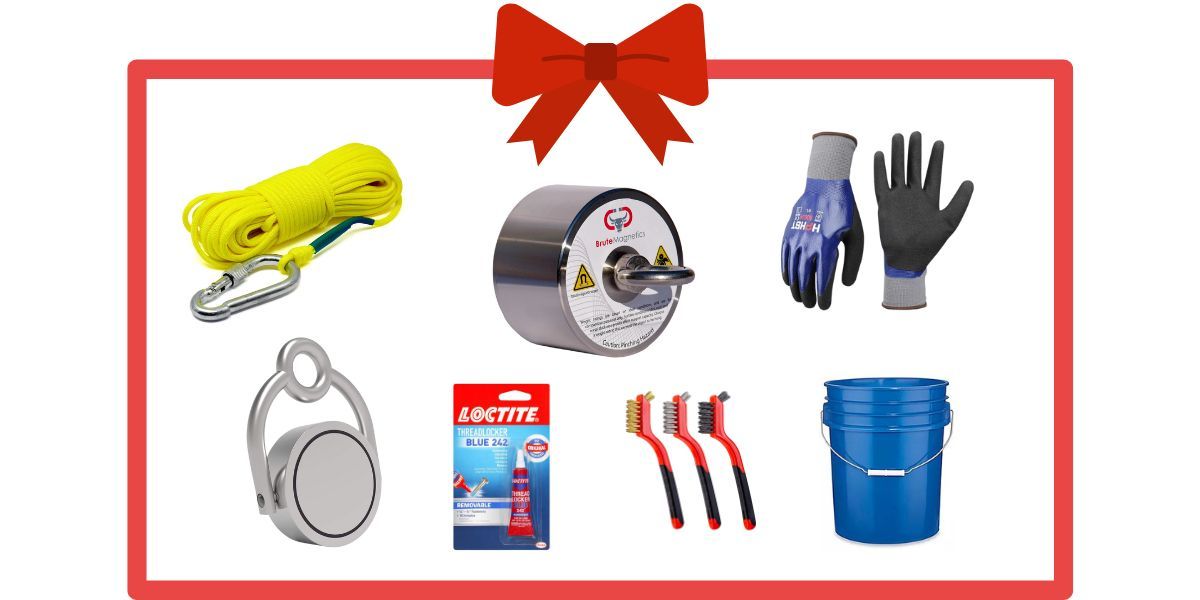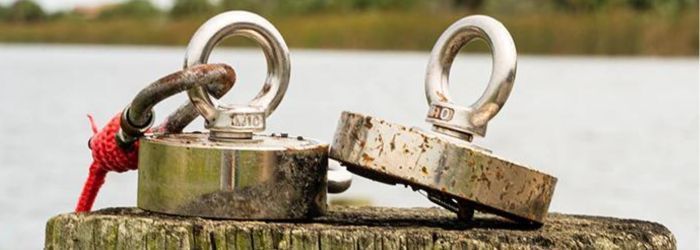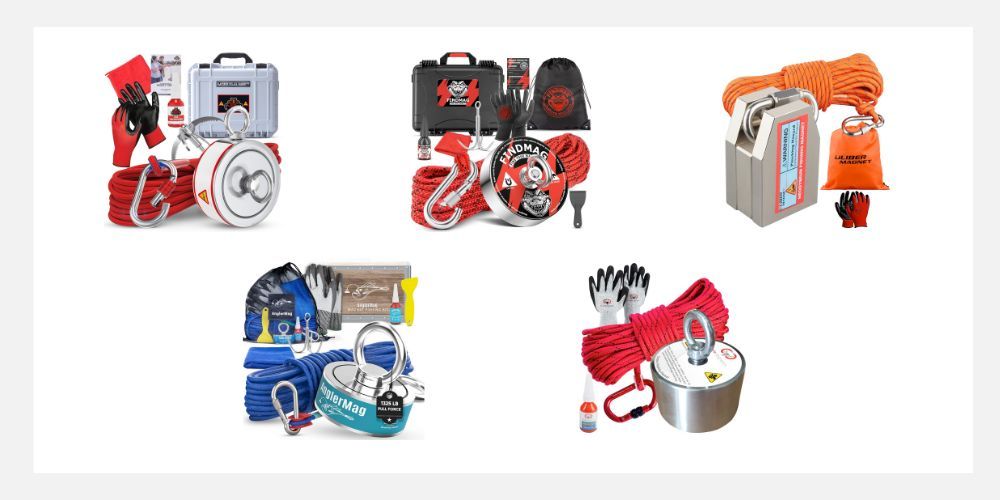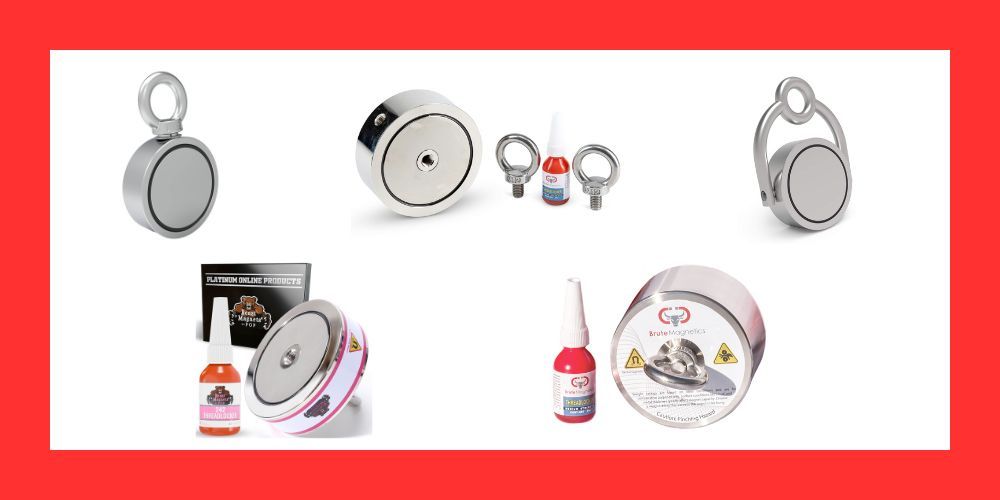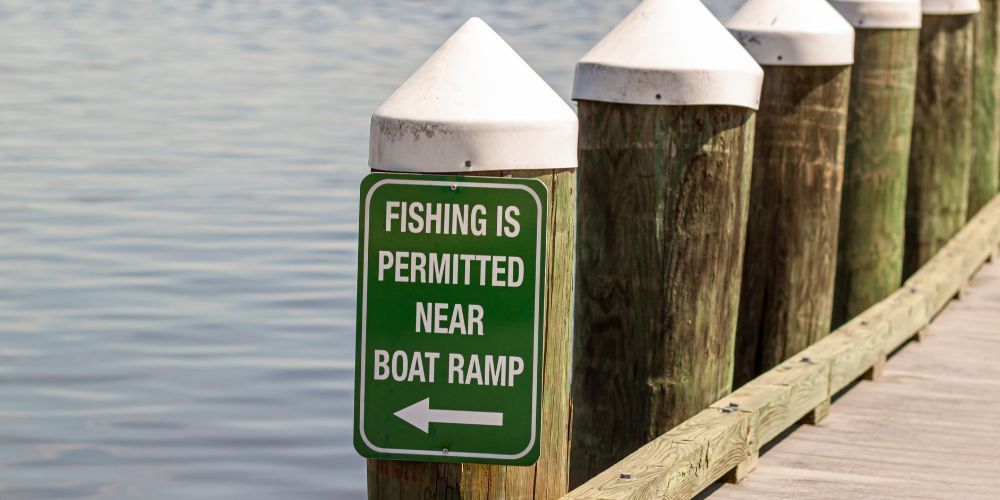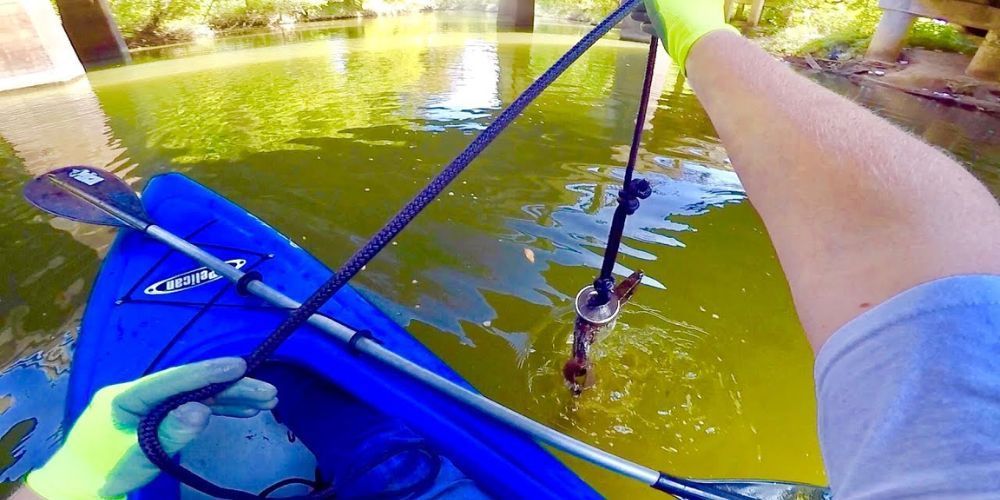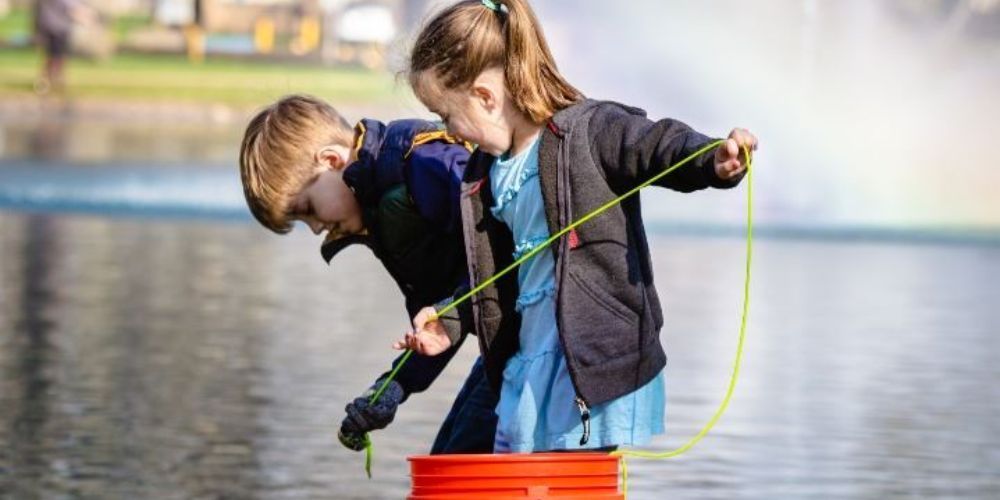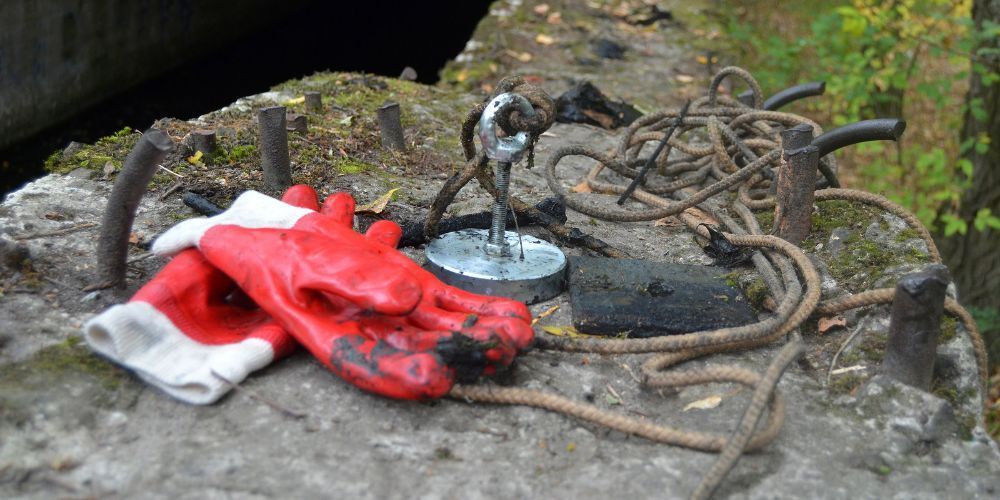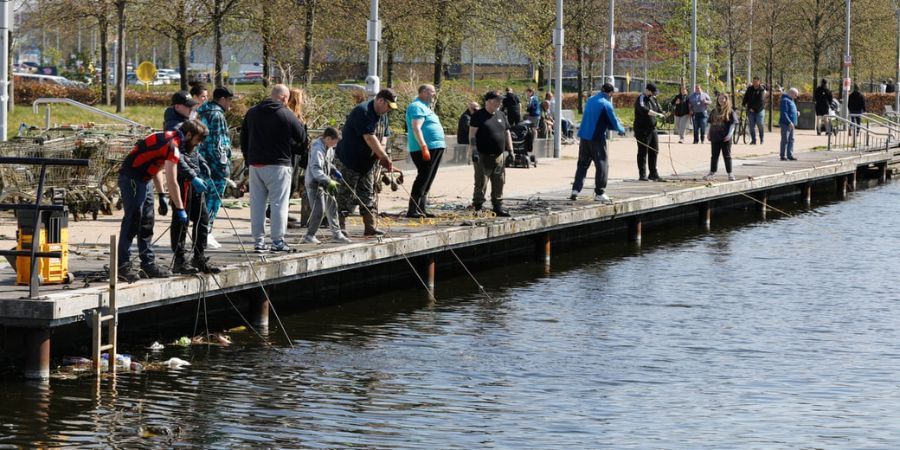Best Gear for Fall Magnet Fishing Adventures
Hey there, magnet fishing friend! Fall is hands-down my favorite season to hunt for underwater treasure. The weather's perfect, the water's clearer, and honestly? There's something magical about pulling rusty relics out of a creek while leaves crunch under your boots.
But here's the thing—you need the right gear to make those epic fall finds happen. I've learned this the hard way after dropping cheap magnets in murky water (RIP to my first setup) and dealing with ropes that turned into tangled nightmares.
So let me share the magnets and ropes that actually work for me, whether you're just starting out or you've been at this for a while.
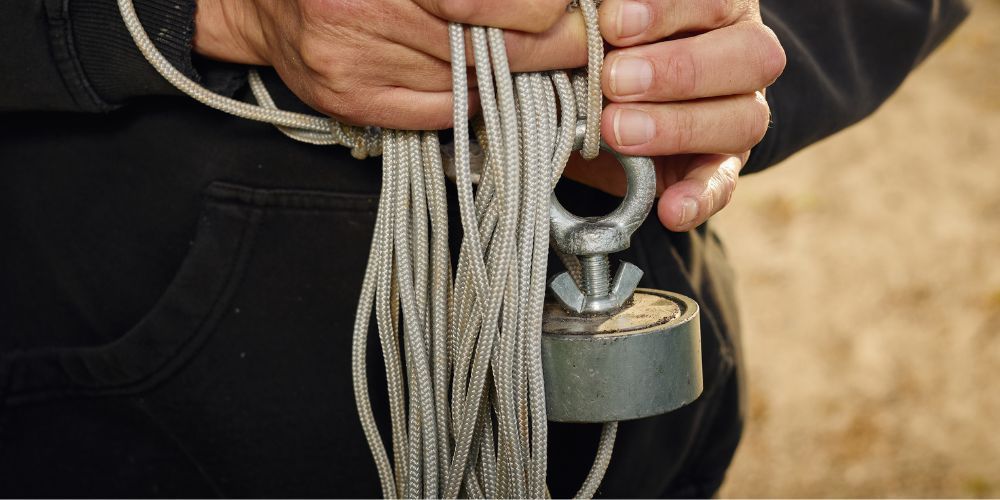
Why Fall Changes Your Gear Game
Fall magnet fishing hits different. The banks get muddy and slippery from rain. You're bundling up in layers, which means you need gear that's easy to handle even with gloves on. Plus, the water levels can drop, exposing new spots that haven't been touched all summer.
That's why I lean toward stronger magnets and beefier ropes during autumn hunts. You want equipment that won't let you down when you hook something big—and trust me, fall is when the good stuff comes out.
My Go-To Magnets for Serious Pulls
Double-Sided Magnets: The All-Stars
I'm a huge fan of double-sided magnets for fall fishing. Why? Because they grab stuff from both sides, which means fewer throws and more finds. When the water's cold and I don't want to be out there all day, efficiency matters.
Recommended: Look for magnets in the 800-1200 lb pull range. Anything less and you'll struggle with heavier items. Anything more and you're just showing off (which, hey, I get it).
The Logui Projects Double-Sided Fishing Magnet (1200 lbs) is my current favorite. It's got a solid coating that holds up against rocks and debris, and the eyebolt is reinforced so it won't snap when you're hauling up something heavy. Plus, the price won't make you cry.
Single-Sided Magnets: The Precision Tools
Don't sleep on single-sided magnets, though. These are perfect for fishing off bridges or piers where you're dropping straight down. They're also easier to detach when you snag something stubborn (which happens more than I'd like to admit).
I keep a 600 lb single-sided magnet in my bag for spots where I know I'll be doing vertical drops. The DIYMAG Neodymium Fishing Magnet works great for this—it's compact, powerful enough for most finds, and has a countersunk hole that keeps the rope connection super secure.
Bundle Deals: Best Bang for Your Buck
If you're new to this or want backup gear (always smart), grab a bundle kit. The Logui Project Fishing Magnet Kit comes with a magnet, rope, gloves, and a carabiner. It's basically everything you need to start pulling treasures out of the water this weekend.
Ropes That Won't Let You Down (Literally)
Here's where a lot of beginners mess up—they cheap out on rope. Don't do that. A snapped rope means you lose your magnet, your find, and probably your good mood.
Thickness and Strength Matter
I always use rope that's rated for at least 1000 lbs, even if my magnet is only 600 lbs. Why? Because when you're yanking on something stuck in the mud or wedged between rocks, you're putting way more stress on that rope than the magnet's pull rating suggests.
My sweet spot is 8mm diameter nylon rope. It's thick enough to grip comfortably (even with wet gloves), strong enough to handle whatever I'm pulling up, and still easy to coil and store.
The NTR 8mm Nylon Rope (65 feet, 2600 lb break strength) has been my reliable companion all year. It's got a little stretch to it, which actually helps absorb shock when you're pulling hard. Plus, the bright orange color means I can see it easily in murky water.
Length Matters Too
Don't go too short! I learned this after trying to fish a deep canal with 30 feet of rope. Spoiler: it wasn't enough.
For most spots, 65-100 feet is perfect. Bridges and deeper water? Go with 100+ feet. The extra rope just sits coiled in your bag until you need it, so there's no downside to having more.
Rope Features I Love
Look for rope with:
- Carabiner included: Makes attaching to your magnet so much easier
- Bright colors: Orange, yellow, or green so you can track it in the water
- Minimal stretch: Some is good for shock absorption, but too much makes pulling annoying
- Marine-grade materials: Because, you know, it's going in water
The GINEE Magnet Fishing Rope checks all these boxes and comes in lengths up to 150 feet if you're planning to fish really deep spots this fall.
My Fall Setup That Just Works
Here's what I'm running right now for most trips:
- Magnet: 1200 lb double-sided (usually my Logui Project)
- Rope: 8mm, 100-foot nylon in bright orange
- Extras: Thick gloves, a 5-gallon bucket for finds, and a small grappling hook for when I need to snag something weird
This combo has pulled up everything from antique tools to bikes to random car parts. It handles muddy banks, rocky bottoms, and those annoying submerged logs that grab your magnet like they're trying to keep it.
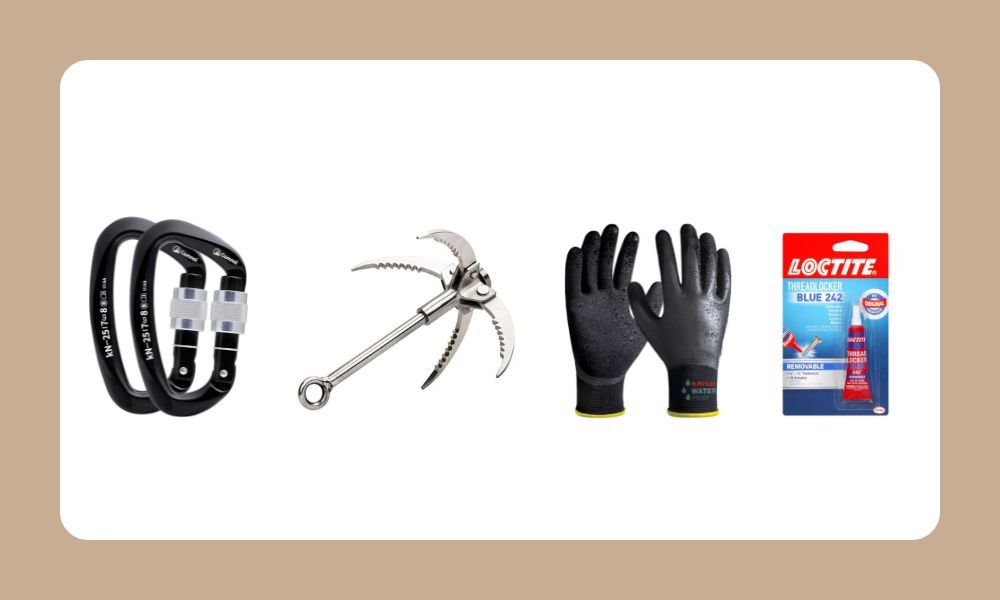
Don't Forget the Small Stuff
A few items that make fall trips way better:
- Work Gloves: The Ironclad General Utility Gloves have saved my hands countless times. Wet ropes and sharp metal don't mix well with bare skin.
- Grappling Hook: Sometimes your magnet gets stuck. A small grappling hook (throw it near your magnet line) can help you dislodge it or grab it from a different angle. The Brute Magnetics Grappling Hook folds up small and fits right in my tackle bag.
- Threadlocker: Put some Loctite Threadlocker Blue on your magnet's eyebolt threads. Seriously. This $6 bottle will save you from losing a magnet because the bolt worked itself loose. Ask me how I know.
- Carabiners: Always carry extras. The Camnal Carabiner Set means I never worry about losing one or needing a quick swap in the field.
What About Budget Setups?
Look, I get it—not everyone wants to drop $100+ on this hobby right away. That's totally fair.
If you're testing the waters (pun intended), start with a combo kit in the 600-800 lb range. The DIYMAG Fishing Magnet Kit gives you everything you need for under $40. Fish with that for a few trips. If you're hooked (another pun, sorry), then upgrade to a stronger magnet and longer rope.
Fall Fishing Tips to Maximize Your Gear
Having good gear is half the battle. Here's how I make the most of it when the leaves start falling:
- Scout spots before the water gets too cold. Early fall means you can still wade a bit if needed. Mark your best locations now.
- Focus on boat ramps and old bridge pilings. People drop stuff here year-round, and fall reveals more of these structures when water levels drop.
- Fish right after rain. The water's moving, which means items shift around and become easier to snag. Plus, muddy banks mean better grip for your boots.
- Bring a friend. Not just for safety—two people can work both sides of a creek or take turns throwing. And honestly? It's more fun with company.
Real Talk: What to Expect
With the right magnet and rope, here's what I typically pull up in fall:
- Tools (wrenches, hammers, random rusty things)
- Fishing gear (so many lures and hooks)
- Scrap metal (sometimes worth recycling for a few bucks)
- Coins and jewelry (the real treasure!)
- Weird stuff (bicycles, shopping carts, road signs)
Not every trip is a winner. Some days you get skunked. But with solid gear, at least you know you're giving yourself the best chance at finding something cool.
What pound magnet is best for beginners?
Start with a 600-800 lb single or double-sided magnet. It's strong enough to pull most items but won't break the bank if you decide the hobby isn't for you. As you get more experience, you can upgrade to 1000+ lb magnets for bigger finds.
How long should my magnet fishing rope be?
Most fishing spots work great with 65-100 feet of rope. If you're hitting deep water, bridges, or piers, go with 100 feet minimum. It's better to have extra rope coiled in your bag than to come up short when you find the perfect spot.
Do I really need gloves for magnet fishing?
Yes! Wet ropes cause rope burn, and anything you pull from the water could have sharp edges, rust, or other nasty stuff. A good pair of work gloves costs $15 and will save your hands from cuts and blisters all season long.
Author: Will Flaiz


